SUMMARY
This is AI generated summarization, which may have errors. For context, always refer to the full article.
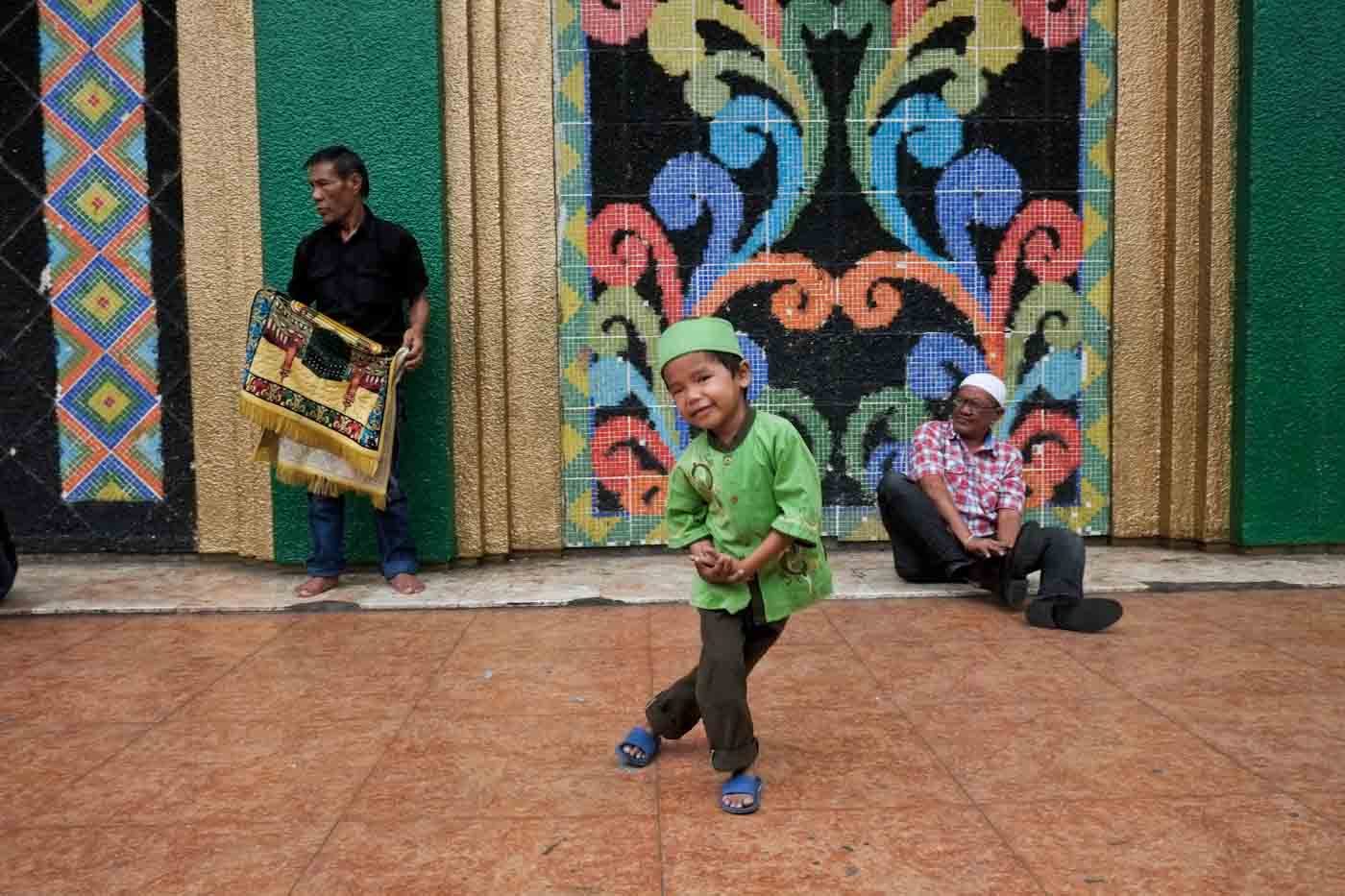
MANILA, Philippines – Bannered by the 1-Bangsamoro group, Muslim migrants from Mindanao gathered at the Mendiola Peace Arch on Friday, February 20, in a peace rally to push for the Bangsamoro Basic Law (BBL).
The protestors, including women in traditional dress, children in tow, as well as Muslim youth, all raised their fists, and chanted “Tikbar! Allahu Akbar!” Praise be to God! Allah is great!
“We are devoted Muslims. We don’t want war,” said Hajji Moh’d Ersad Malli, administrator of the Golden Mosque and Cultural Center in the Muslim Town in Quiapo, Manila. The title of Hajji is reserved for Muslims who have gone to Mecca – and Hajji Malli has been to Mecca 24 times.
“Islam means peace. Kapayapaan, pagmamahal, compassionate, be kind… Kasi hindi naman iniutos ng Almighty Allah sa Quran sa Islam sa mga Muslim na maging mamamatay-tao,” he said. “Rahmatul alameen. Mercy to all creation.”
(Peace, love, compassion, kindness. In the Quran of Islam, the Almighty Allah did not command Muslims to become killers.)
In his office, Hajji Malli has a portrait of himself, a laminated painting of the Golden Mosque, and a framed Arabic inscription. In between sips of coffee and puffs of cigarette smoke, he tries to explain the complex history of how Muslims in Mindanao, the Moros of Bangsamoro, became warriors.
He said Islam was already long entrenched in Mindanao, some two centuries before the Spanish conquistadores came to colonize the islands, long before the Christianization of its inhabitants, long before the Philippines became the Philippines. (READ: Cardinal to Christians: Moro dream ‘very valid’)
Muslim Mindanao has become a land in constant war; the Moros, a people engaged in centuries of armed resistance, against colonizers and foreign invaders – Spanish, American, Japanese – “infidels,” as Hajji Malli calls them.
He likens them to burglars who invade your home, threaten to steal what is yours, threaten to harm your family, threaten to kill you. “What do you do?” he asks. “You defend yourself. You protect your family,” he said.
With scholarly conviction, he enumerates massacre after massacre – Jabidah, Patikul, Pata. He then enumerates the Philippine government’s efforts to bring peace to their bloodstained land – the 1976 Tripoli Agreement, the 1987 Jeddah Accord, the 1996 Jakarta Agreement, and now, the BBL.
“Kapayapaan? Lahat tayo naghahangad ng kapayapaan. Pero ang tunay na kapayapaan, everlasting peace in Mindanao, huwag ‘yung maglokohan, ‘wag ‘yung walang sincerity,” he said.
(Peace? We all want peace. But real peace, everlasting peace in Mindanao. No shams, no insincerity.)
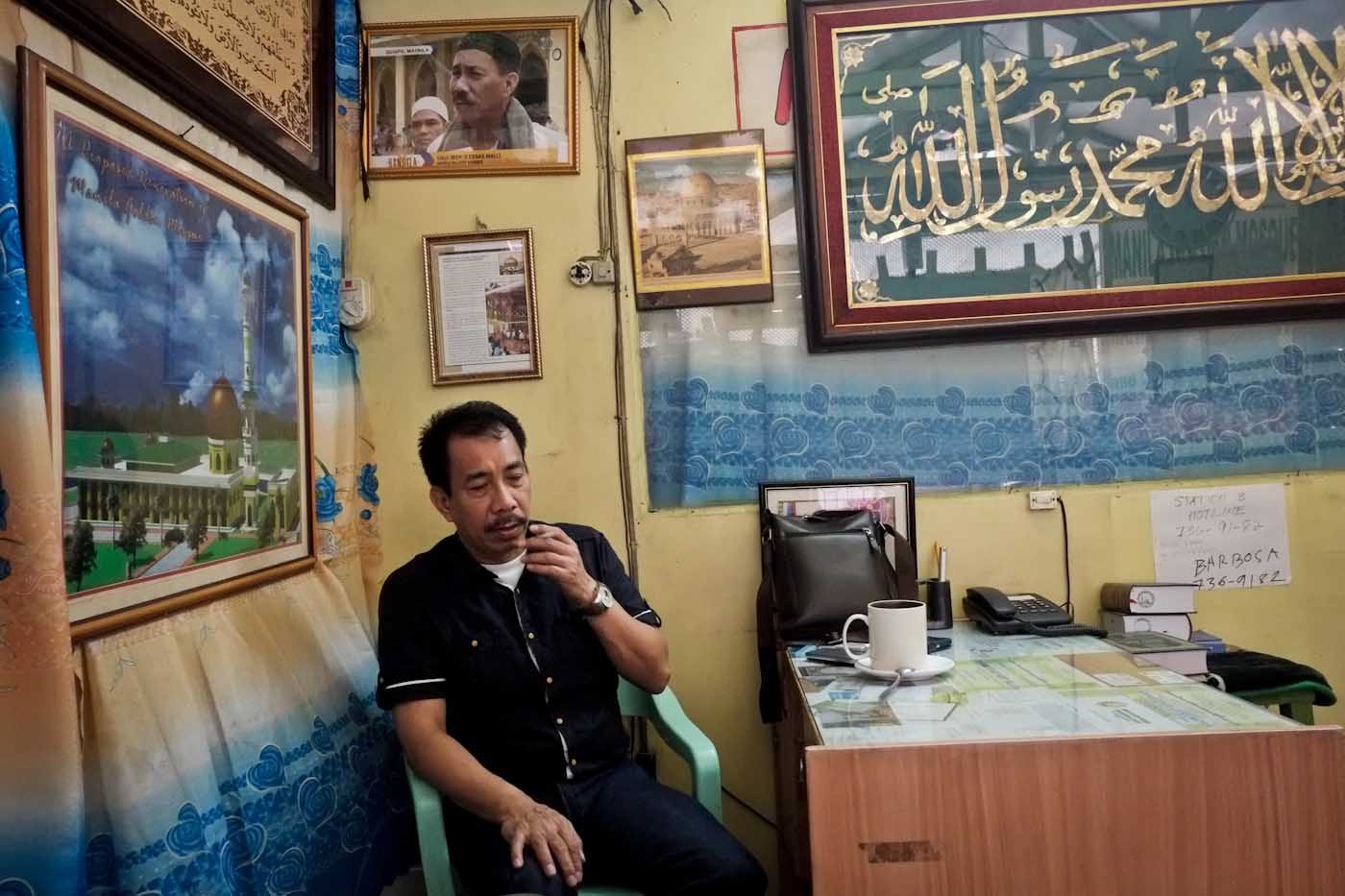
Hajji Malli recounts how as an 11-year-old boy, he swam the Sulu Sea to reach the ships of the Philippine Coast Guard, or “naval” as he refers to them. Many other Tausugs like him swam to the ships. They climbed its ropes. Behind them was their homeland, being razed to the ground by the fierce fighting between government troops and the Moro National Liberation Front (MNLF). It was the 1974 Battle of Jolo, reportedly the first attempt by the MNLF to declare Mindanao as an independent Islamic state.
So it was the tides of war that first brought Hajji Malli to Manila. While he admits he had relatives who were MNLF combatants, he confesses that he is a street parliamentarian, perhaps, owing to his political science education at the Zamboanga Arturo Eustaquio Colleges. He said he led the flag burning at the Malaysian Embassy several years ago, after thousands of his Muslim brothers, the Halaws, were deported from Sabah.
Although the country’s capital city has been his home for about 30 years now, Hajji Malli said, “Lahat kami naghahangad ng kapayapaan kasi ako, ipinanganak ako sa Sulu, gusto ko mamatay ako sa Sulu. Gusto ko mailibing ako roon.”
(We all want peace. I was born in Sulu. I want to die in Sulu. I want to be buried in Sulu.)
Children of the war
“I was born in 1971, on the day of the Tacub Massacre,” said Camal Punut, who hails from Marawi City.
The Tacub Massacre was reportedly an election-related violence allegedly committed by the paramilitary group, Ilaga, literally a Visayan word that means “rat.” But some say it is acronym for Ilonggo Land Grabbers’ Association.
“Ayon sa aking mga magulang, ‘yung mga kamag-anak ng nanay ko doon sa Wao, Lanao del Sur, habang sila papunta sa Marawi, natambangan sila sa Tacub. Inambush!” Punut narrated.
(According to my parents, our relatives from my mother’s side from Wao, Lanao del Sur, were on their way to Marawi, when they were waylaid in Tacub. They were ambushed!)
“Lahat sila’y nakitang walang tenga,” he added. (All of them had their ears chopped off.)
The Ilagas were reportedly notorious for chopping of their victims’ ears and keeping it as trophies.
The Punuts fled to Manila in 1975 to escape the ensuing violence in their homeland. Camal’s father was implicated in the Battle of Marawi 3 years earlier. Suspected as the financer of the rebels, Marawi City’s own provincial cashier was jailed by the military. The elder Punut was later released.
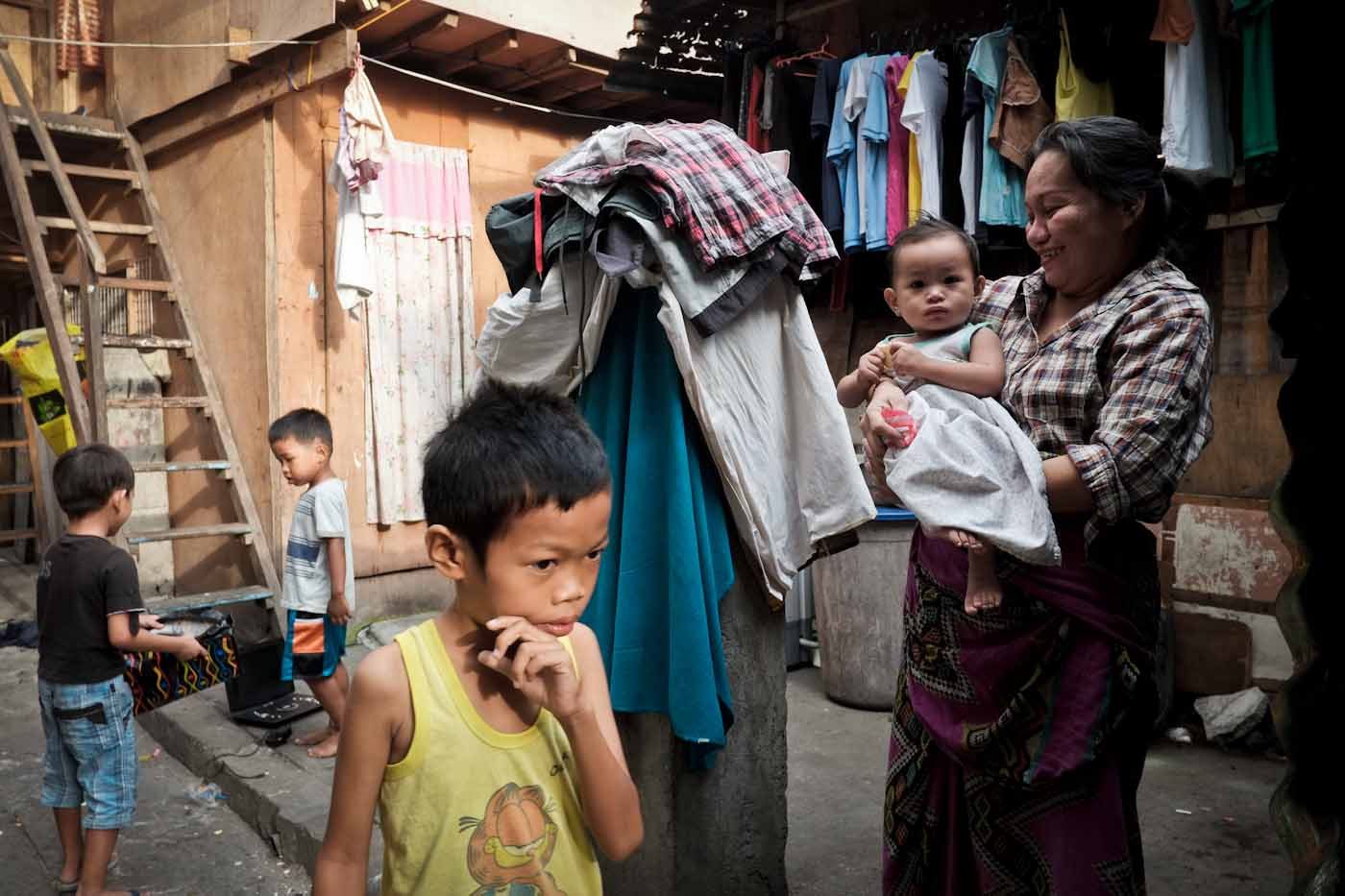
“He sacrificed his position, went to Manila, and started from scratch,” Punut lamented.
When he came out of the Golden Mosque after attending the midday Salah (worship), the 44-year-old Punut was wearing a collared polo shirt, with the letters DILG stitched on it. He works as a technical consultant for informal settler families for the Department of Interior Local Government (DILG), the agency responsible for the Philippine National Police.
“Ang mga rason kung bakit nagpunta rito yung mga taga-Mindanao, unang una, gustong umiwas sa gulo. Pangalawa, edukasyon. Pangatlo, trabaho. ‘Yung iba naman, pumunta rito para magnegosyo,” Punut said.
(The reasons why people from Mindanao migrated here, firstly, they don’t want war. Secondly, education. Thirdly, jobs. Others also come here for business.)
Meanwhile, Mohammad Ameril came to Manila on the same year as the so-called bloodless revolution, the People Power of EDSA, which ousted President Ferdinand Marcos from power.
Ameril is from the troubled land immortalized by Asin’s folk song, penned by the late Saro Banares, “Cotabato.”
“Simula’t simula magulo na,” said Ameril, who seemed to be paraphrasing Saro’s song. “Nakita ng dalawang mata namin at na-experience namin kung ano ang nangyayari sa Cotabato.”
(It’s been troubled ever since. We saw with our own eyes and experienced first hand the violence in Cotabato.)
The worst of which, as far as Ameril remembers, is witnessing the public market being bombed by jet planes. There were many civilian casualties, he said.
“Hindi maiiwasan ito. Kailangan mapalayo,” Ameril concluded. (There’s no escaping this. I needed to get away.)
So the then 30-year-old father of 6 left his family in Cotabato, went to Manila, wanting to further his education. But what he found in Manila was a new love.
Love in the time of war
Adrian Hadil is outside the gates of the Golden Mosque, hawking packs of Malaysian-made Kari noodles and biscuits to his fellow Muslims.
He greets them jovially. “Engineer! Kari!” “Imam! Kari!” At times, he simply waves his Kari packs at the passing crowd.
The 35-year-old vendor has been living in Metro Manila for about 3 decades now. He was only about 5 when he came to live in Fort Bonifacio, at a time when the fort was still a military fort, and Bonifacio was yet to be rebranded as a global city.
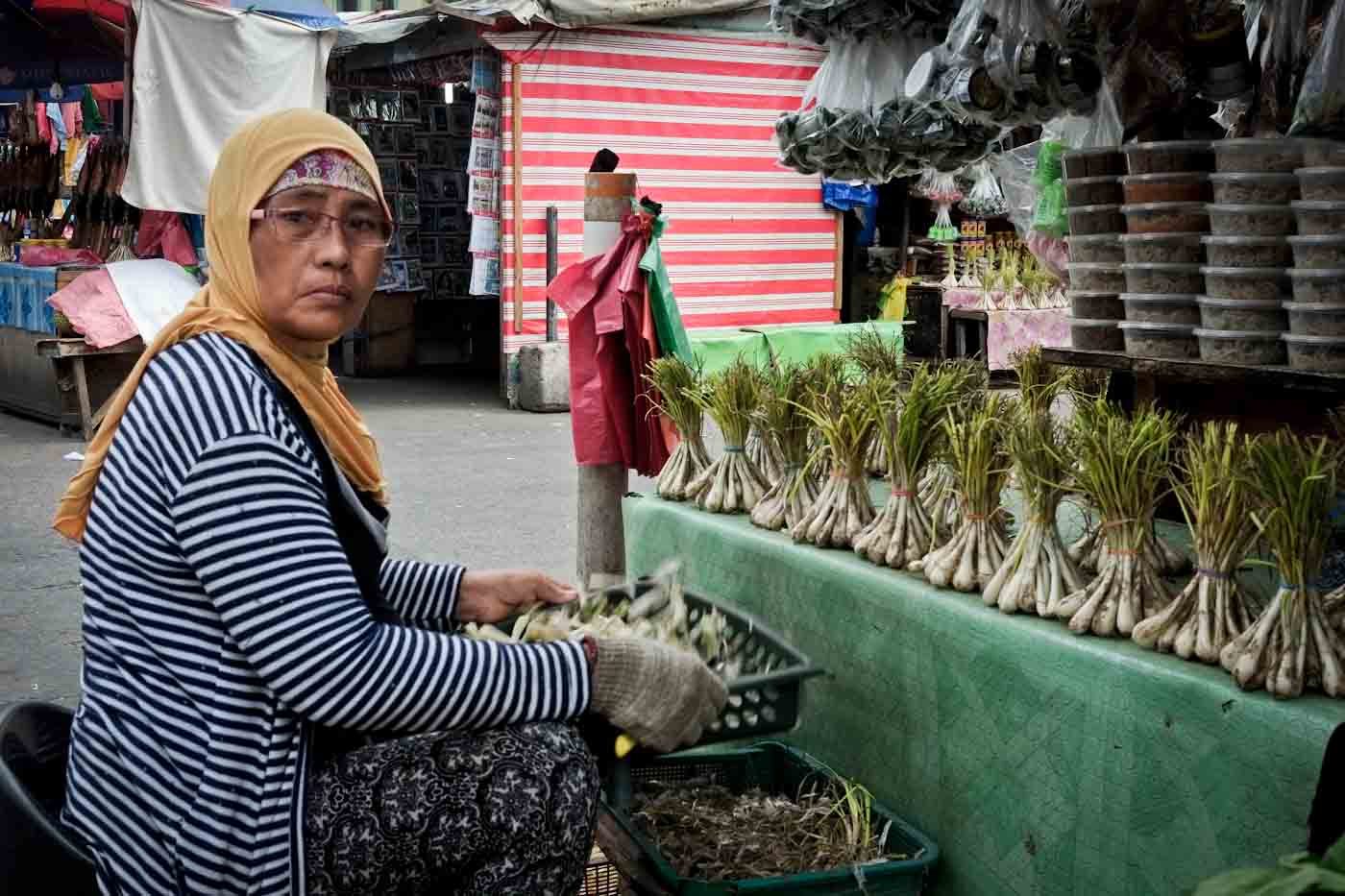
Hadil is among 5 children of love who came from a war-torn land. His father is from the 34th Infantry Battalion stationed in Jolo in the late 70s. His mother is Muslim. How a non-Muslim Ilocano soldier became husband to a Tausug Muslim from Jolo is Hadil’s story to tell.
“Taga-Ilocos ang tatay ko, kababayan ni Marcos. Alam mo naman, mga astig sila. Namanhikan. Kaya walang nagawa ang relasyon namin sa mother’s side, dahil military na, unang-una, military takeover pa,” he narrated. “Nagkagustuhan din sila ni nanay.”
(My father is from Ilocos, from the same hometown as Marcos. You know, they’re tough. He courted my mother. Relatives from my mother’s side couldn’t do anything. Firstly, my father was military. And it was the time of military takeover. They eventually fell in love.)
Customarily, Muslim women are prohibited from marrying men of other faiths.
But Hadil said, “Siyempre, hindi mo maiiwasan ang in love. Basta idaan din sa mabuting usapan. Programa ng Maykapal ‘yan.” (You can’t stop people in love. Just talk things through. It’s the will of God.)
On the other hand, it was probably not the will of God for Ameril to become a policeman. He came to Manila to fulfill that dream. But he fell in love, took a second wife, and had 12 more children.
“Pangarap ko talaga ‘yan, maging pulis ang anak ko. Kaya pinag-graduate ko ng criminology sa University of Manila. Kahit sa nangyari sa Fallen 44, gusto pa rin maging pulis ang anak ko. SAF pa!” Ameril confessed.
(It’s my dream, for my son to be a policeman. I sent him to the University of Manila to finish criminology. Despite what happened to the Fallen 44, I still want him to become a policeman. SAF even.)
Waging the bigger war
Ameril, Hadil, Hajji Malli, and Punut all say the real victims of the war in Mindanao are non-combatants like them, civilians caught in the crossfire. The faceless many who have lost their lives, lost their loved ones, and lost their livelihood. The unnamed many who have been forced to flee from their land of birth, the many who gave up their lands, the many who gave up their homes.
Nobody wants war. Rebels, soldiers, police, they all want peace, said Punut. Even the Fallen 44, the MILF, the BIFF, and the civilians in Mamasapano, who may have been involved in the clash, do not want war, Punut believes.
According to Hajji Malli, the Quran is all about love. “Love, love, love,” he said.
But the BBL is not getting that much love from politicians, lately. The Mamasapano encounter, or “misencounter” as some camps would like to put it, seems to have put a damper on the peace talks between the Philippine government and the Moro Islamic Liberation Front (MILF). The Congress has temporarily suspended discussions about the BBL, while the investigation about the Mamasapano clash is still ongoing.
However, many believe the BBL, though not perfect, is still the best option for peace.
Ameril said, “Kung honest to goodness, both sides, government at revolutionary factions, kung ibibigay nila kung anong due sa Bangsamoro, matagal na tayong matahimik. Walang taong may gustong magulo.”
(If both the government and revolutionary factions will sincerely give what is due to the Bangsamoro, we would have long been at peace. Nobody wants war.)
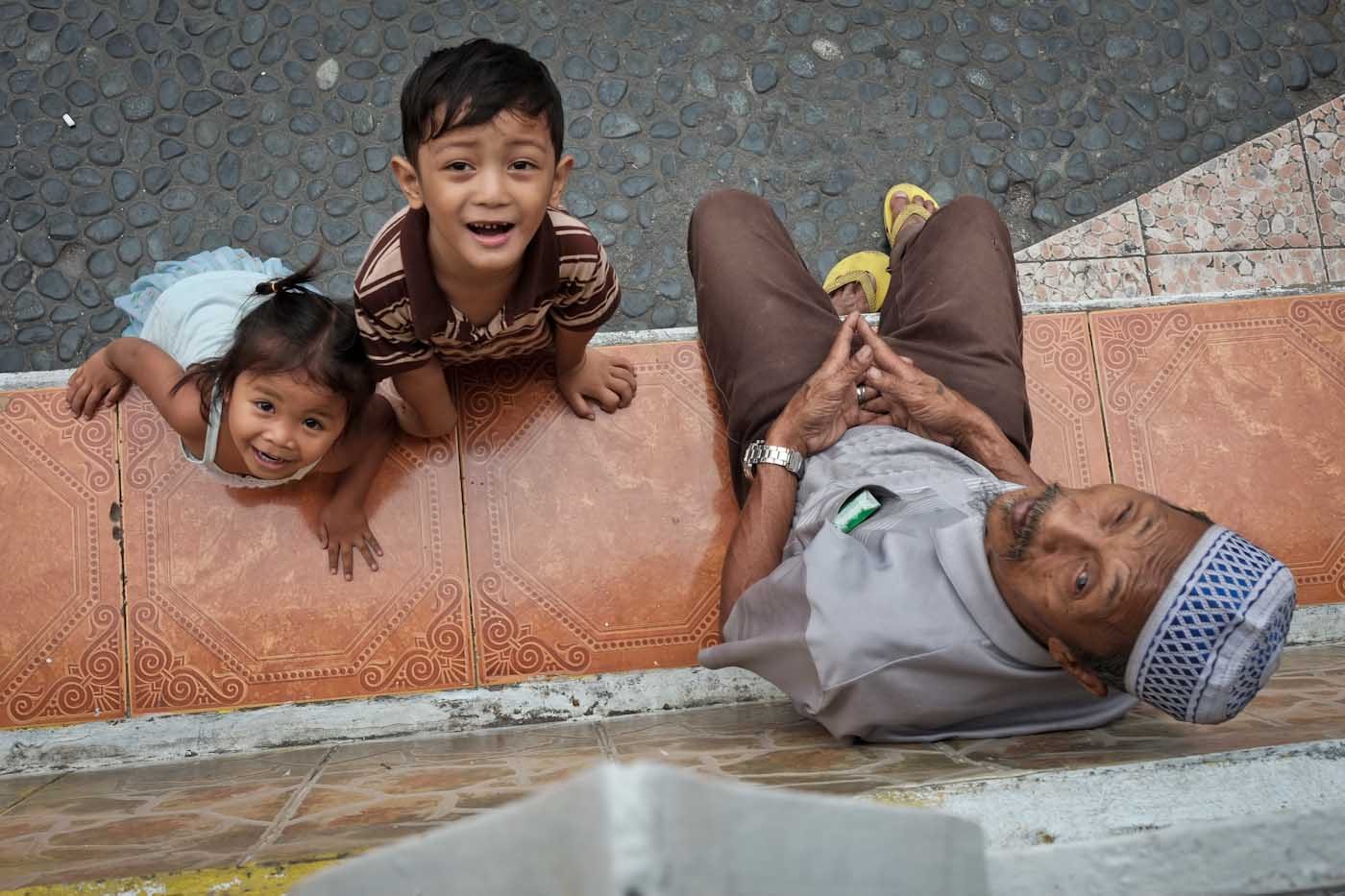
It seems the success of the BBL not only lies on what the government can offer at the negotiating table, but also on who among the various Muslim revolutionary factions will accept the offer. The failed Autonomous Region in Muslim Mindanao only represented the demands of the MNLF. Now, the BBL is mainly representing the sentiments of the MILF, reportedly the largest revolutionary Islamic group in Mindanao today.
“May MNLF, may MILF, may BIFF. Puro ego ‘yan. Si Misuari, may ego. Ang MI, may ego. Si IFF, may ego. Di ‘yon kagustuhan ng Diyos, puro ego lang ‘yun sa kanila. If they will stick to the law of Allah, kung totoo sila lahat, matagal na silang nagkaisa. Kasi God, the universal almighty Allah, said, ‘All must, in the roof of Allah, don’t allow yourselves to be disunited,” said a disgruntled Hajji Malli.
(There’s the MNLF, the MILF, the BIFF. All egos. Misuari has an ego. The MI has an ego. IFF has an ego. That is not the will of God. They’re just all egos. If they will stick to the law of Allah, if they are all true to the cause, they should have long united. Because God, the universal Almighty Allah, said, ‘All must, in the roof of Allah, not allow yourselves to be disunited.’)
Hajji Malli said he has seen the failings of the ARMM, the false promises of the national government, how some mujahideens turned into traditional politicians, and how it eventually broke down. This, he said, resulted to the Zamboanga siege in 2013, which displaced hundreds of thousands of people and triggered a humanitarian crisis.
The Mallis, who have already established their lives in Zamboanga after they were forced to migrate there by the 1974 Battle of Jolo, were again victims of war. In a cruel case of déjà vu, almost 40 years later, they again lost their homes and their livelihood.
William, Hajji Malli’s nephew, recently fled to Manila. The 22-year-old émigré said they have been camped at the Joaquin Enriquez Memorial Sports Complex since the siege. He said people are dying there. They are hungry and helpless.
There is a holy war to be fought, said Hajji Malli. Jihad al-akbar. It is the war against desire. Combat against one’s self. An internal struggle we all must overcome. Until we are purified, only then will we have peace.
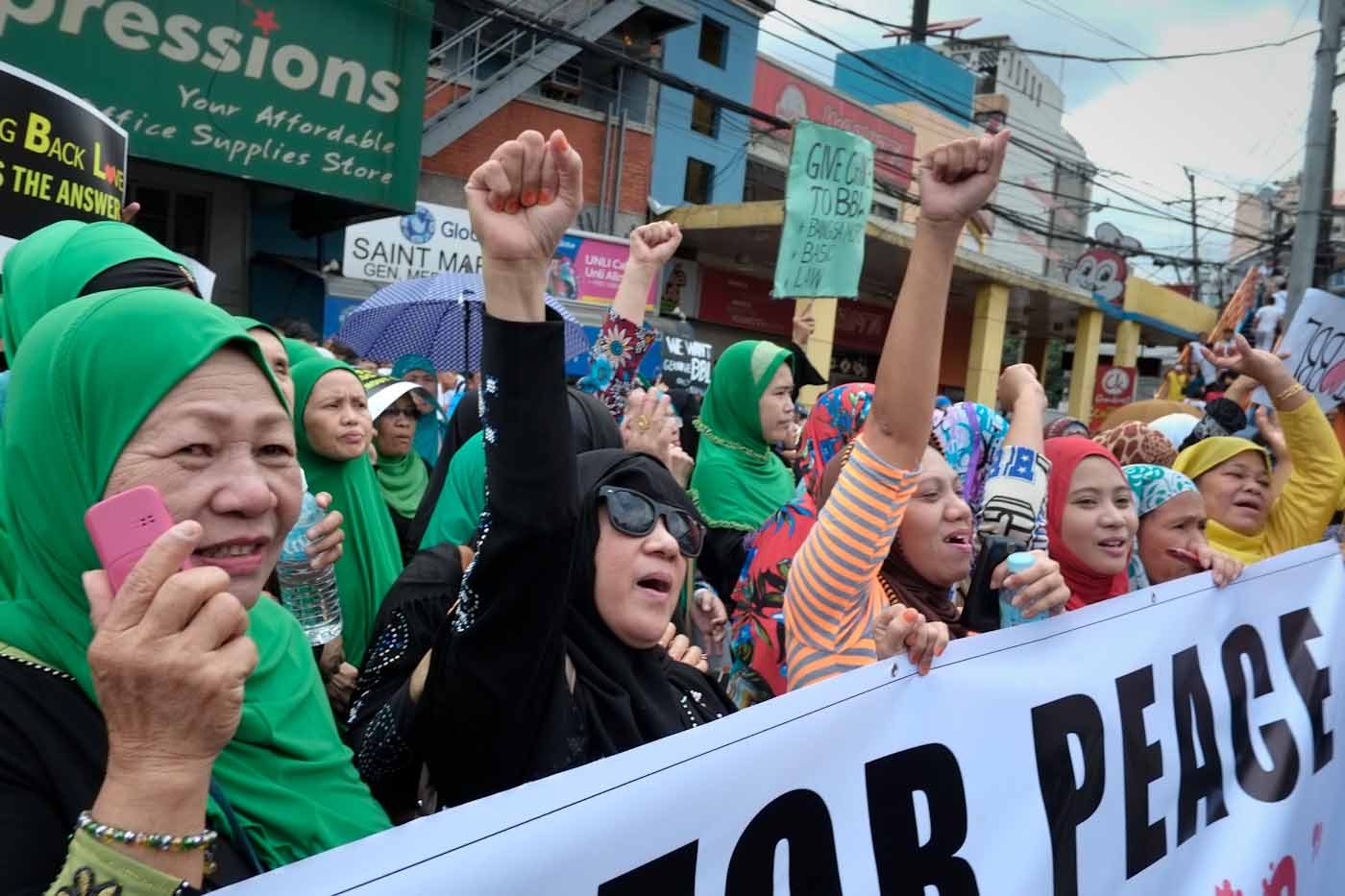
– Rappler.com
Add a comment
How does this make you feel?
There are no comments yet. Add your comment to start the conversation.